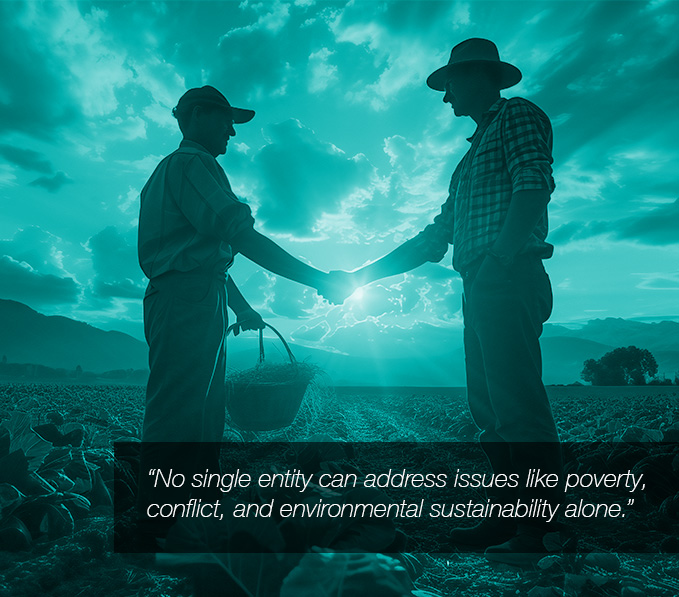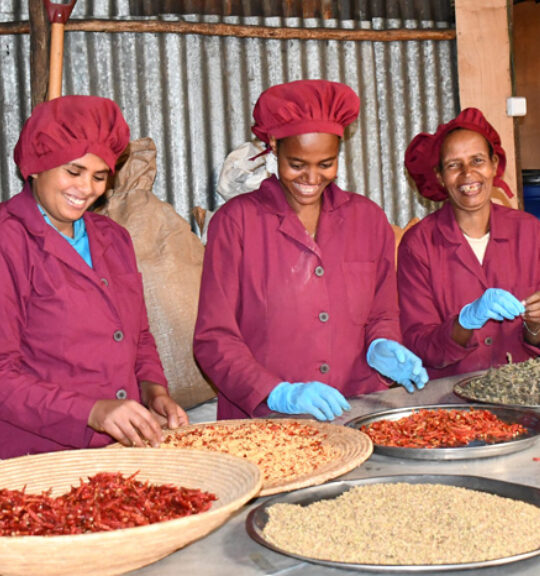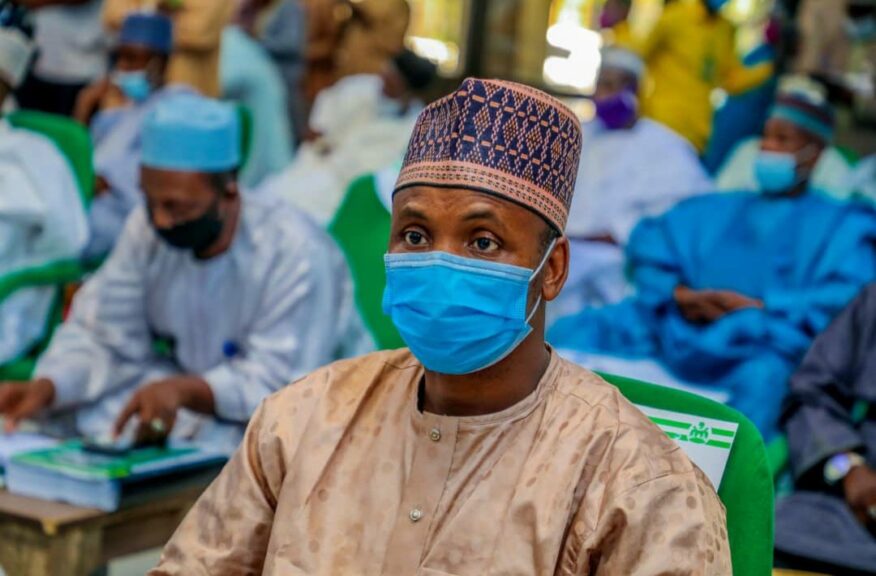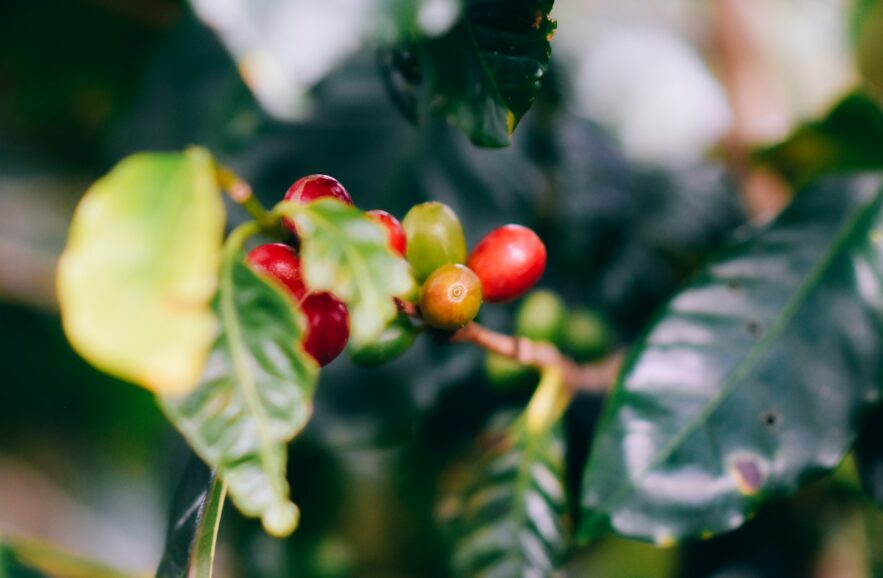Our Impact


None of us can do this alone. “Working together” may sound cliché, but finding ways to structure relationships between individuals, organisations, governments, and industries is far from trite. It’s a critical step on our path toward a more sustainable future, and it takes deep experience and local expertise.
No single entity can address issues like poverty, conflict, and environmental sustainability alone. Collaborative efforts allow for pooling of knowledge, sharing of best practices, and leveraging of each partner’s strengths, which leads to more effective, localised, and sustainable solutions that benefit communities worldwide.
Perhaps most importantly, partnerships promote inclusivity, allow for projects to properly scale, and increase the shared ownership of outcomes. Involving local communities and staff ensures that programs and initiatives are culturally appropriate, locally accepted, and widely supported. This inclusive approach enhances the effectiveness and sustainability of development projects, as it aligns them with the needs and priorities of those they aim to help.
Through strong partnerships, we can build a more equitable and prosperous world, one where everyone has the opportunity to thrive.
Small Business Success
In Egypt, where the government is pushing to modernise and grow the economy, our Trade Reform and Development project is partnering with both industry and government entities to increase Egypt’s exports and promote foreign direct investment from small and medium enterprises. In the past year alone, the project established more than 1100 partnerships to strengthen the economy and bolster small businesses.
Built on decades of U.S. investments into Egyptian businesses and economic policy, the project is focused on creating an environment where small businesses can thrive. A critical part of creating that environment is partnerships and much of the work that Egypt Trade does is making connections to ensure successful partnerships.
In practice, creating those connections means having a presence at conferences and hosting roundtables for small businesses and the associations that support them, introducing them to the services that Egypt Trade provides, and starting conversations around technical support. For 25 Egyptian small businesses that attended an intensive two-day workshop on payment settlements, Egypt Trade helped to equip them with the practical skills and knowledge to navigate the complex world of international trade payment settlements.
The program focused heavily on the intricacies of payment mechanisms and included an emphasis on risk assessment, with a strong focus on choosing payment strategies suitable for the conditions of each trade deal. Scaling success for small businesses starts small. It starts with technical assistance and the support and partnerships that provide a leg up to reach new markets otherwise inaccessible to them.
Partnerships through Investments
For the Market Development Facility (MDF) team, partnership is everything. MDF, which works across 7 countries in Asia Pacific to promote sustainable economic development, through higher incomes by connecting individuals, businesses, governments and NGOs with each other, and with markets at home and abroad.
Much of the team’s work is focused on helping partner countries adapt to climate change, which is disrupting agricultural value chains in various ways. MDF’s interactions with agribusinesses reveal that while adaptation needs on farms are acute, like adapting to climate change, other areas of business operations also require attention.
Crop processing is being affected by unseasonal rainfall and high humidity, causing losses and decreasing quality; seed production is being hampered by deteriorating growing conditions; and natural disasters are impeding physical access to farms and markets. It’s vital that firms understand the specific climate risks to their operations and invest in solutions that build resilience, maintain functionality and revenues across their supply chains, and contribute to food security.
In 2023, MDF worked with partners on adaptation in multiple value chains. In coffee in Timor-Leste and Sri Lanka, MDF co-invested with businesses to improve drying infrastructure. Enclosed drying houses and raised drying beds enable firms to dry coffee more efficiently and prevent rain damage. Similar infrastructure in Samoa has enabled Samoa Herbs to improve its kava drying. In Sri Lanka, MDF worked to develop protected agriculture solutions, enabling its partner, DIMO, to increase production of climate-resilient chili seeds for its farmer network
Partnerships are cooperation. They’re resource-sharing; they’re capability-strengthening; they lighten the load and create impact that’s greater than the sum of its parts.




